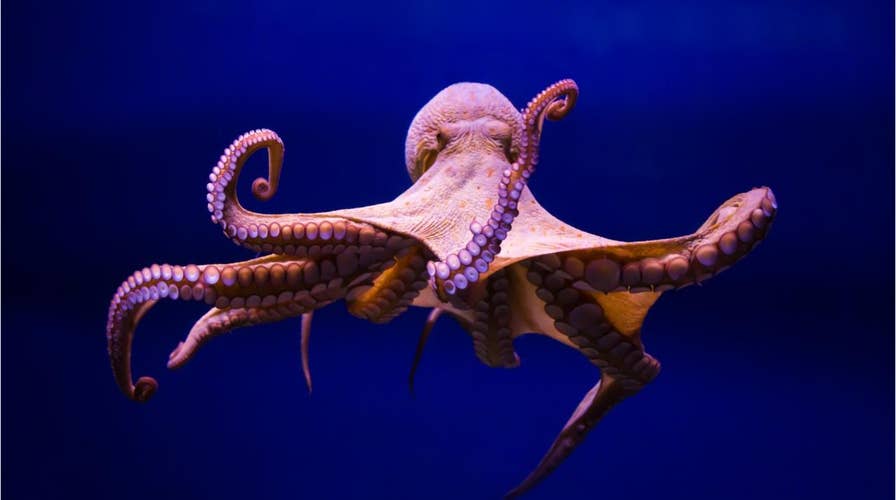Researchers say octopuses hold key to understanding aliens
New research presented at the 2019 Astrobiology Science Conference looks at how an octopus is able to perceive and process information using their tentacles, which are believed to have minds of their own.
The key to understanding E.T. might be as simple or as complex as understanding a creature on Earth we know very little about — the octopus.
New research presented at the 2019 Astrobiology Science Conference looks at how an octopus is able to perceive and process information using their tentacles, which are believed to have minds of their own.
“The octopus’ arms have a neural ring that bypasses the brain, and so the arms can send information to each other without the brain being aware of it,” Dominic Sivitilli, a graduate student in behavioral neuroscience and astrobiology at the University of Washington, said in a statement. “So while the brain isn’t quite sure where the arms are in space, the arms know where each other are and this allows the arms to coordinate during actions like crawling locomotion.”

Giant Pacific octopus. (Credit: Dominic Sivitilli)
LIFE ON ICY ALIEN WORLDS MAY RESEMBLE CREATURES UNDER SUBMERGED HAWAIIAN VOLCANO
Sivitilli worked with different kinds of octopus for the experiment, including the Giant Pacific octopus and the smaller East Pacific red octopus. Both species are believed to have learning and problem-solving capabilities that are similar to those seen in crows, parrots and primates.
Like humans, the octopus has similar behaviors to other vertebrates, but it's the central nervous system that could be the key to understanding life outside our planet. Of the 500 million neurons inside an octopus, 350 million of them are in its eight arms. Its arms are all capable of processing and learning sensory information, akin to running and understanding eight computers at once.
“The octopus’ arms have a neural ring that bypasses the brain, and so the arms can send information to each other without the brain being aware of it,” Sivitilli added. “So while the brain isn’t quite sure where the arms are in space, the arms know where each other are and this allows the arms to coordinate during actions like crawling locomotion.”
Octopus, which have been on Earth for 500 million years, use their arms and the suckers on their arms to get information from their environment. From there, they coordinate with the other suckers on the arm and figure out a course of action, without the use of their brains, the research found.
The researchers made the observations utilizing a camera and behavioral-tracking software.
“One of the big picture questions we have is just how a distributed nervous system would work, especially when it’s trying to do something complicated, like move through fluid and find food on a complex ocean floor," David Gire, a neuroscientist at the University of Washington and Sivitilli’s advisor for the project, said in the statement. "There are a lot of open questions about how these nodes in the nervous system are connected to each other.”
EXTRATERRESTRIAL LIFE COULD BE SCARCER THAN FIRST THOUGHT, STUDY SAYS
"What we're looking at, more than what's been looked at in the past, is how sensory information is being integrated in this network while the animal is making complicated decisions," Sivitilli added.
Octopus and cephalopods, in general, are thought to be highly intelligent. In the past, they've been able to solve mazes and complete tasks in an effort to get rewarded with food. In 2009,
a few veined octopus were observed collecting discarded coconut shells, which they then cleaned with jets of water and used to make a new shelter for themselves.
The key to understanding their intelligence could very well help us understand lifeforms on other planets, the study's abstract states. "Understanding the computational basis for alternative forms of cognition beyond the vertebrate model provides a framework for the diversity of forms cognition can assume beyond Earth."









































